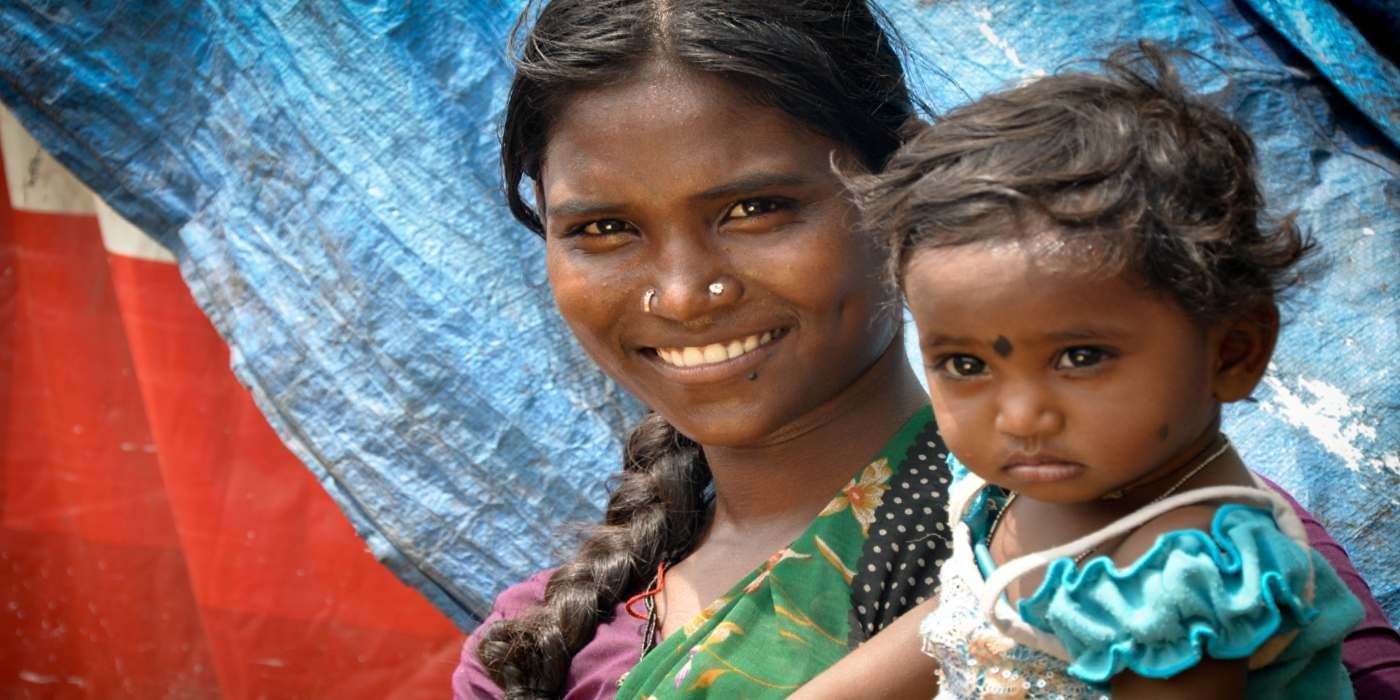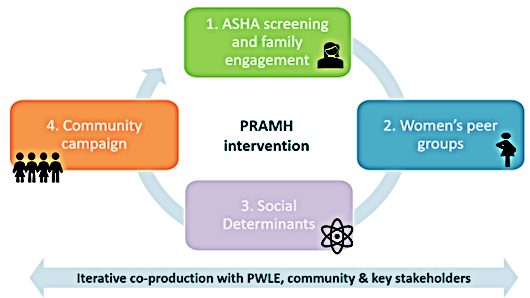
The SMARThealth Perinatal Mental Health (PRAMH) Study: Improving women’s perinatal mental health in rural communities in India
Background
Perinatal mental disorders have been classified as significant complications of women’s pregnancy and postpartum periods. 1 in 5 women experience common mental health problems during the perinatal phase (CPMDs), and the rates are even higher for women in low- and middle-income countries (LMICs). Yet, most women with CPMDs do not receive care, with little research existing on how to best address CPMDs in low resource, rural settings. The ‘treatment gap’ (difference between actual and treated CPMDs) is linked to a lack of promotion, prevention and early intervention of perinatal mental health (PMH).
The Perinatal Mental Health project (PRAMH) is a mixed-methods, single-arm feasibility study developing a complex intervention to support women with CPMDs in rural India, by integrating mental health into maternity care within the communities.
Aim
To understand the local context of perinatal mental health and collaboratively develop a complex, community-based intervention with community members, including people with lived experiences (PWLE) and key stakeholders to improve women’s mental health in the perinatal phase in rural and semi-rural districts of Haryana and Telangana in India.
Method
PRAMH is a single-arm feasibility intervention study with a mixed methods evaluation comprising four parts:
- Designing a novel digital screening tool to identify rural women at risk of CPMDs
- Developing a peer group-led intervention to support women during pregnancy and after birth.
- Building a network and approach to integrate perinatal mental health and its social determinants.
- Developing a community-based campaign to address stigma and discrimination around perinatal mental health.

This study will be conducted in two states of India, Haryana and Telangana respectively to represent two geographically, linguistically, and culturally diverse populations.
200 eligible women who are either pregnant or have given birth within the last six months will be screened for CPMDs using a digital tool until a sample size of 100 women for the "peer groups" is reached. Across four villages in two states, ASHAs will help the research team to identify women with lived experience of CPMDs who are interested in taking part in the “peer groups” along with training of a peer group lead. Four peer groups in each state will be meeting over a period of 4 months, with 6-8 participants in each peer group. Additionally, we will co-develop a novel strategy to address stigma and discrimination through a local community campaign, targeting women’s PMH
Current Status
The screening of rural women for CPMD has been completed in September 2024.







